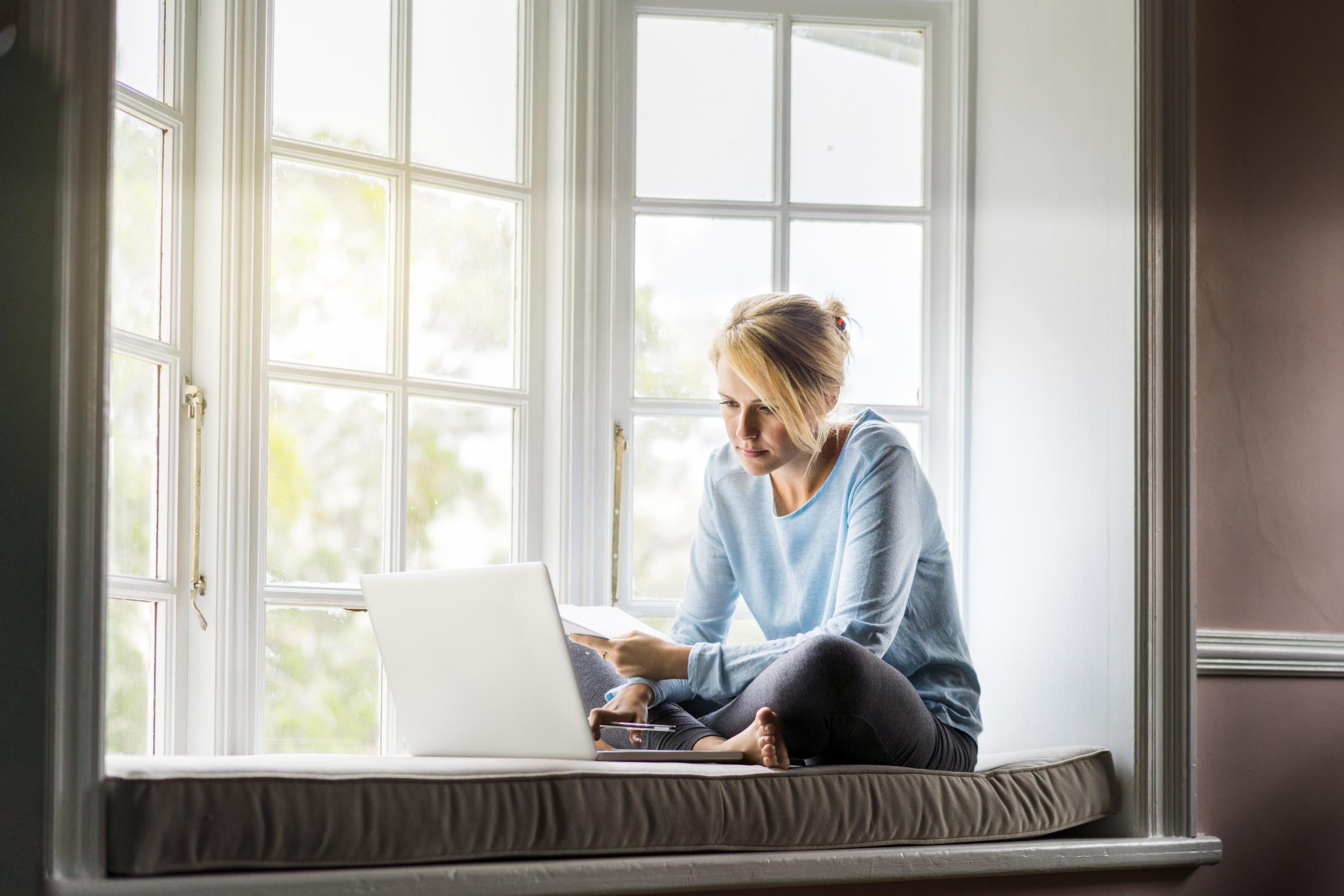The Independent's journalism is supported by our readers. When you purchase through links on our site, we may earn commission.
Coronavirus: Why you should wear sunscreen even while quarantining indoors
Sunscreen should be worn year-round

Your support helps us to tell the story
From reproductive rights to climate change to Big Tech, The Independent is on the ground when the story is developing. Whether it's investigating the financials of Elon Musk's pro-Trump PAC or producing our latest documentary, 'The A Word', which shines a light on the American women fighting for reproductive rights, we know how important it is to parse out the facts from the messaging.
At such a critical moment in US history, we need reporters on the ground. Your donation allows us to keep sending journalists to speak to both sides of the story.
The Independent is trusted by Americans across the entire political spectrum. And unlike many other quality news outlets, we choose not to lock Americans out of our reporting and analysis with paywalls. We believe quality journalism should be available to everyone, paid for by those who can afford it.
Your support makes all the difference.With millions of people staying home in an effort to curb the spread of coronavirus, the sun may seem like a distant memory.
However, social distancing does not mean it is okay to skip the most important part of your daily skincare routine - sunscreen - as you should still be wearing it for protection indoors.
According to dermatologists, the reason individuals are advised to continue slathering on sunscreen despite spending the majority of their days inside at home has to do with windows and UVA rays.
Speaking to Allure, Joyce Park, a California-based, board-certified dermatologist said: “It's a common misconception that you don't need to wear sunscreen when you're indoors.
“Standard glass windows block UVB but not UVA rays, which can penetrate deeper into the skin than UVB [rays], [and] are the main contributing factor to photo-ageing - which are changes seen as dark spots, wrinkles, and leathery textured skin.”
In addition to ageing, UVA rays are also proven to contribute to the development of skin cancer, according to the Skin Cancer Foundation.
The risk is especially high for those who are sitting close to a window, or in a room with lots of sunlight, Park said.
As for how often you should reapply, Hadley King, a board-certified dermatologist in New York City, told the outlet that the same rules apply if you are sitting near a window as to when you are out in the sun.
“Reapply once every couple of hours,” she said.
And while it may mean adding another step to your skincare routine, most dermatologists recommend using a broad spectrum sunscreen rather than relying solely on cosmetic products that have added sun protection factor (SPF) - as SPF alone does not protect against UVA rays.
“Many people believe that having an SPF in their moisturiser or foundation for example will suffice,” consultant dermatologist for La Roche-Posay, Justine Hextall, previously told The Independent. “But, it is important to remember that SPF only refers to protection against UVB.
“UVA is a longer wavelength that can penetrate glass. It is the main wavelength that damages our collagen and also can increase our risk of skin cancer.”
Fortunately, days spent indoors means plenty of time to dedicate to your skincare routine.
Join our commenting forum
Join thought-provoking conversations, follow other Independent readers and see their replies
Comments